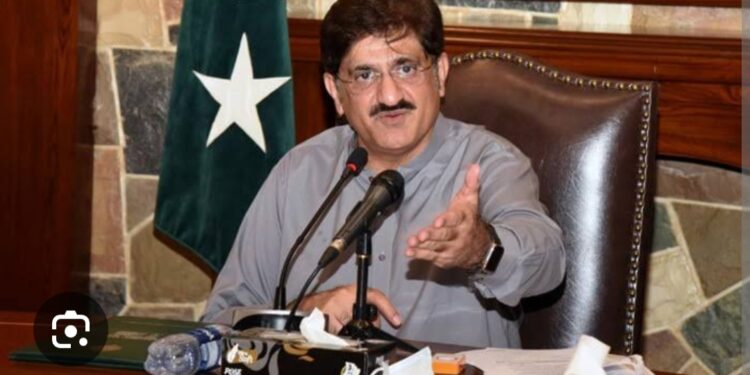ISLAMABAD: The federal government’s move to eliminate Electricity Duty (ED) from consumer bills is expected to face stiff resistance from provincial governments, with Sindh taking the lead in rejecting the proposal, Newzshewz has reliably learnt.
Sindh Chief Minister Murad Ali Shah has fired the first salvo, criticizing Islamabad for attempting to impose a unilateral decision. He asserted that the federal government should “put its own house in order” before advising provinces to discontinue ED.
On June 30, 2025, Federal Minister for Power Sardar Awais Ahmad Khan Leghari issued letters to the provincial chief ministers, requesting that they abolish Electricity Duty from July 1, 2025.
However, in a strongly worded response dated July 1, 2025, the Sindh Chief Minister said no such letter had been received by his office.
“I am writing with reference to recent press statements attributed to your office regarding the discontinuation of Electricity Duty collection through electricity bills starting July 2025. However, no formal communication on this matter has been received by the Government of Sindh,” the letter stated.
According to Shah, Electricity Duty is a “legitimate and longstanding provincial levy under provincial law,” and forms a modest but critical part of Sindh’s own-source revenue. He stressed that collection through electricity bills is not only established but also an administratively efficient mechanism. Therefore, any change to this arrangement “cannot be decided unilaterally.”
Responding to reported suggestions that provinces find alternative ways to collect the duty outside the billing system, Shah criticized the lack of practical or cost-effective options provided by the federal government. “No transition support has been offered. Shifting the collection burden to provinces without appropriate infrastructure or institutional support is neither viable nor constitutionally sound,” he added.
The Chief Minister argued that if the federal government is serious about reducing electricity costs for consumers, it should focus on reforms within its own domain. These include:
Reducing system losses and technical inefficiencies
Controlling electricity theft and improving recoveries
Rationalizing capacity payments under generation contracts
Reviewing federal taxes, surcharges, and cross-subsidies that inflate consumer-end tariffs
He further emphasized that simplifying electricity bills must be a result of genuine cooperative federalism, not through “bypassing provincial rights or dismantling established fiscal instruments.”
“The Government of Sindh strongly urges the Power Division to formally engage all provinces through the Council of Common Interests (CCI) or another intergovernmental forum to address the issue of high electricity costs,” the letter concluded.
Officials believe other provinces are likely to follow Sindh’s lead, advocating that the matter be taken up at the CCI level for a collective resolution.
Ends
NEPRA accepts Sahiwal Power Plant’s explanation, closes blackout inquiry
ISLAMABAD: The National Electric Power Regulatory Authority (NEPRA) has settled Show Cause notice issued to 1320 MW Sahiwal coal-fired power...
Read more














